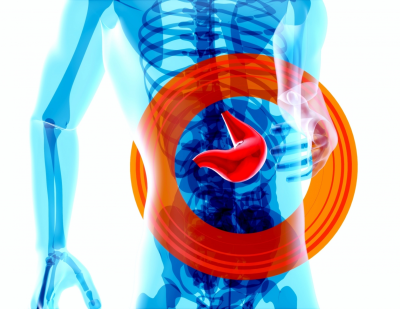Faridabad: Indians have a heightened predisposition to insulin resistance, a condition that not only underlies diabetes but also significantly contributes to the development of fatty liver, according to a health expert on Monday.
“Studies show that based on a combination of environmental and genetic factors non-alcoholic fatty liver disease (NAFLD) is prevalent among 9-53 per cent of the general population. Currently known as metabolic-associated fatty liver disease (MAFLD), it is a public health problem in India. Obesity, abdominal obesity, diabetes, hypertension, and dyslipidaemia collectively called metabolic syndrome, are the predisposing factors,” said Dr Bhaskar Nandi, HoD, Gastroenterology, Amrita Hospital, Faridabad.
“The genetic inclination towards insulin resistance contributes significantly to such prevalence of development of NAFLD among the Indian population,” he added.
It is widely prevalent and is a silently progressive disease and has emerged as one of the leading causes of chronic liver disease, cirrhosis, and liver cancer and is a common reason for liver transplants in India.
“NAFLD is asymptomatic till it manifests as cirrhosis in late stages. It is usually diagnosed incidentally on ultrasonography or during evaluation for abnormal liver function tests (LFT). Some patients may experience subtle right upper abdominal discomfort,” Dr Nandi said.
“As the disease progresses to cirrhosis, general ill-health, failing health, low appetite, and features of liver decompensation or portal hypertension emerge like ascites (water in the abdomen), jaundice, blood in vomitus, altered sensorium, renal dysfunction, and sepsis,” he warned, adding that “advanced forms of NAFLD may lead to liver cancer”.
He also said that “metabolic disorders like diabetes, hypertension, dyslipidemia, and obesity also aggravate NAFLD and drive it to cirrhosis. In turn, NAFLD is an adverse marker of outcome in metabolic disease”.
Besides prompt treatment, he also recommended lifestyle modification by reducing weight and strict alcohol abstinence to treat NAFLD. He also stressed the need to reduce sugar, deep-fried foods, refined foods, and excessive butter and oil.
“Patients should aim to reduce their weight by at least 10 per cent ideally over a year, through diet and exercise. A hypocaloric Indian diet, which involves smaller portions of home-cooked meals, is recommended,” Dr Nandi said.
“Focus on fruits, vegetables, and legumes, while minimising cereals and grains. Regular physical activity, with 4-5 weekly sessions of 40-45 minutes each, combining cardio and resistance training, is strongly advised. Detox diets and protein supplements are not recommended,” the doctor said.
–IANS


Comments are closed.